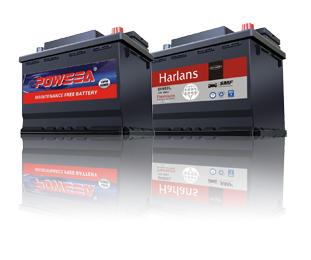Certification des batteries plomb-acide - Ne vous retrouvez pas avec des batteries non conformes !
Vous achetez des batteries plomb-acide ? Voici pourquoi la certification est importante
Si vous importez batteries au plomb-acideLa certification des piles n'est pas une simple formalité, c'est une nécessité. L'achat de piles non certifiées peut entraîner des retards douaniers, des amendes, voire le rejet total de la cargaison. Pire encore, les piles non certifiées peuvent ne pas répondre aux normes de sécurité ou de performance, mettant ainsi votre entreprise et vos clients en danger.
Chaque pays a des exigences différentes et si vous ne les vérifiez pas à l'avance, vous risquez de vous retrouver avec un envoi que vous ne pourrez pas utiliser. Par exemple, la Russie exige Certification EACLa Malaisie et l'Indonésie ont leurs propres réglementations en matière de sécurité et de qualité. Connaître les bonnes certifications avant de passer commande peut vous faire gagner du temps, de l'argent et de la frustration.
Différents pays, différentes règles - Ce qu'il faut savoir
Considérez la certification comme une garantie de qualité. Tout comme vous n'achèteriez pas une voiture sans vérifier qu'elle est homologuée pour la circulation routière, vous ne devriez pas importer des piles sans vérifier leur conformité. Voici ce qu'exigent les différents marchés :
-
Russie et pays de l'EEE - EAC (Conformité Eurasienne) est obligatoire. https://eec.eaeunion.org
-
Union européenne - Marquage CE (https://ec.europa.eu/growth/single-market/ce-marking_en) & Conformité RoHS (https://ec.europa.eu/environment/topics/waste-and-recycling/rohs-directive_en)
-
Moyen-Orient et Afrique - Souvent, il faut IEC 61427 ou IEC 60095 pour les performances de la batterie. https://www.iec.ch
-
Asie du Sud-Est (Malaisie, Thaïlande, Philippines, Indonésie, Laos) - Diverses certifications nationales :
-
Malaisie - Certification SIRIM https://www.sirim.my
-
Thaïlande - Certification TIS http://www.tisi.go.th
-
Philippines - Certification BPS https://www.dti.gov.ph/consumers/standards
-
Indonésie - Certification SNI https://bsn.go.id
-
-
Chine et certains marchés asiatiques - Normes CQC et GB réglementer la sécurité et les performances des batteries. http://www.cqc.com.cn
Que se passe-t-il si vous importez des piles non certifiées ?
Imaginez que vous dépensiez des milliers d'euros pour un envoi et qu'il ne vous soit pas livré. bloqué à la douane parce qu'elle n'est pas certifiée. Ou pire encore : imaginez que vous vendiez des piles non certifiées et qu'elles tombent en panne, entraînant des plaintes de la part des clients, voire des problèmes juridiques.
Quelques risques courants liés aux piles non certifiées :
Retards ou refus d'expédition - Les douanes ne laissent pas passer les produits non certifiés.
Amendes et problèmes juridiques - De nombreux pays imposent des sanctions pour les importations non conformes.
Mauvaises performances et risques pour la sécurité - Les piles non certifiées peuvent avoir une durée de vie plus courte ou présenter un risque d'incendie.
Réputation entachée - La vente de produits de qualité inférieure peut nuire à votre crédibilité.
Comment s'assurer que l'on achète des piles certifiées ?
Avant de passer une commande, suivez les étapes suivantes pour éviter des erreurs coûteuses :
-
Connaître les exigences de votre pays - Vérifiez quelles sont les certifications requises pour votre marché.
-
Demander la preuve de la certification - Ne vous contentez pas de croire le fournisseur sur parole : demandez des documents officiels.
-
Vérifier auprès des autorités - Utilisez les sites web de certification ci-dessus pour vérifier la validité.
-
Travailler avec des fournisseurs de confiance - Les fabricants réputés connaissent les règles de conformité et fournissent des produits certifiés.
-
Éviter les offres trop belles pour être vraies - Si un fournisseur propose des piles très bon marché sans certification, c'est un signal d'alarme.
Dernières réflexions - La certification protège votre entreprise
Acheter des batteries plomb-acide certifiées, ce n'est pas seulement respecter les règles, c'est aussi protéger votre investissement. Avec les bonnes certifications, vous pouvez éviter les problèmes juridiques, garantir des produits de haute qualité et établir une relation de confiance avec vos clients.
Avant votre prochaine importation de batteries, prenez le temps de vérifier les exigences de certification. C'est un petit geste qui peut vous éviter de gros problèmes.




